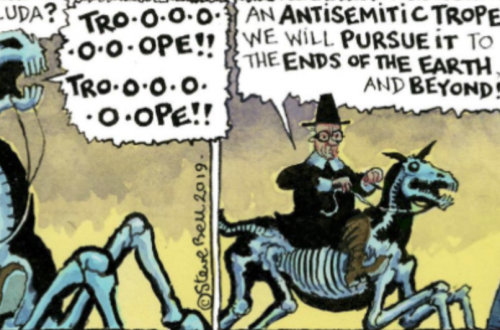The premise of Jews Don’t Count is that antisemitism is too often glossed over – blanked out – by just those progressives who would usually rush to support any beleaguered minority group. The book opens with a series of examples of antisemitism failing to register as a cause for concern; the cumulative impact of these is to make a forceful case for the existence of double standards. A telling instance relates to the 2019 musical production of Alice Walker’s The Colour Purple. While the actress, Seyi Omooba, was sacked from playing the role of Celie because of her homophobic views, antisemitic statements made by Alice Walker herself don’t seem to have registered as a deal-breaker. Such examples make it easy to see why Baddiel fears that antisemitism is increasingly being seen as a ‘second-class racism’ (p. 11). He goes on make a powerful point about the way in which antisemitism can manifest itself, not just as a malign presence (usually on the far right), but also as an absence.
But what I’ve begun with here is a series of examples of the opposite: of absences. Of something – a concern, a protectiveness, a championing, a cry for increased visibility, whatever it might be – not being applied to Jews. (p. 14)
This kind of antisemitism by omission is a source of particular frustration to Baddiel because it is most commonly to be found within his own political home, the left.
Baddiel goes on to engage with the familiar argument that Jews are excluded from the category of oppressed groups because they are themselves associated with the oppressors – with money and power. He offers the example of American actor and activist John Cusack retweeting an antisemitic meme about Jewish power, and being forced to apologise and assert that he ‘did not have an anti-Semitic bone in his body’. (This defence against charges of antisemitism or racism is risibly weak – its persistent popularity is bizarre given how hollow it always sounds.) But there are countless such examples, all illustrating the way in which too many on the left don’t appear to condemn antisemitism until they are forced to deal with a personal accusation. They need, as Baddiel puts it, ‘a Jewish rear-view mirror’ (p. 22). The same people who would usually insist on any minority group’s right to define what is racist are often the first to react indignantly if one of their own is charged with antisemitism (p. 39).
This is a cross-post from Fathom. You can read the rest of the review here.




